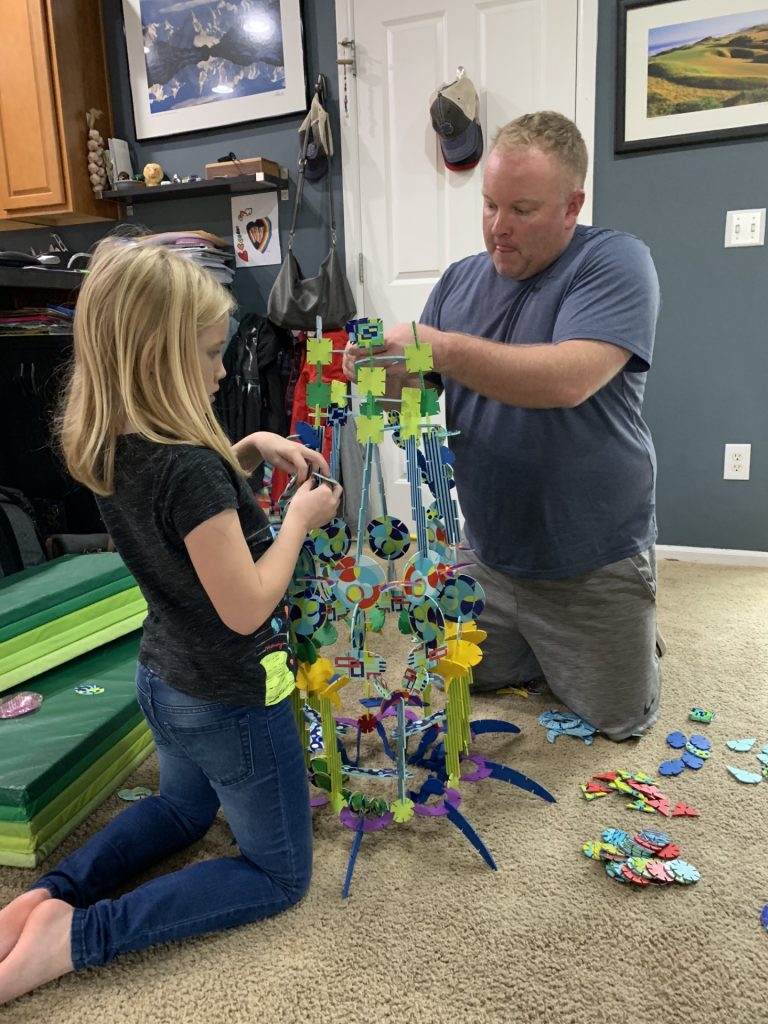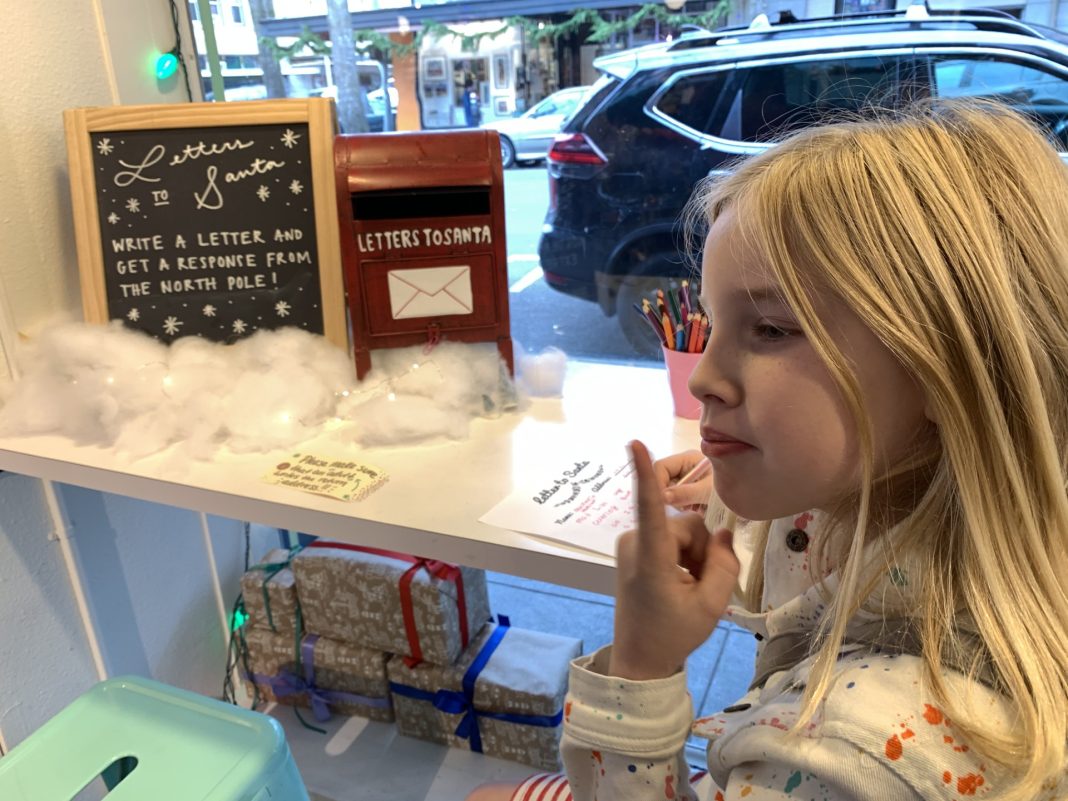Do you have extra stress through the holidays? You’re not alone. Cary Hamilton is a licensed mental health counselor, child mental health specialist, and the owner of Olympia Therapy. She confirms this season is a trying time for children and their parents. Additionally, this year has brought extra challenges around the recent election cycle.
Is it just a fantasy that you and your loved ones could have a season of recharging and connecting instead of finding yourself overwhelmed with exhaustion and unmet expectations? Cary believes that with a bit of thoughtful planning, you and your family can have more harmony and joy through the holidays. Let’s take a look.

Why Do Holidays Seem to Breed Stress?
We are surrounded by images of happy shoppers and tables of people eating and laughing together. No one is tired or grumpy – except maybe the Grinch. Our regular lives have stressors like work, family obligations, grocery shopping, house maintenance, etc. Then comes the holiday season that adds in school concerts, parties, extra sugar and short daylight hours.
“Parents don’t want to accept their own levels of stress,” notes Cary. Ignoring it or thinking you can hide it is ineffective. Your children see your struggles and many of the nuances of life. “Kids always know what’s going on,” she says from experience. It’s okay to admit life is hard. Not talking about the elephant in the room doesn’t make it go away.

“What we see a lot of is that children are mirrors of their parents’ stress,” says Cary. Parents are angry and so it shows up in their children. When extra activities, people and places are thrown into the holiday mix, it taxes everyone. Things start crashing down when everyone is overwhelmed.
For example, consider the holiday meal at grandma’s house. “Parents have expectations kids will behave a certain way in certain place,” she says. The annual event is supposed to be a time for everyone to be off phones and chat together. This is the parental idea, with the underlying belief that it’s only once a year so everyone should be present. What actually happens is kids are tired or bored and sit with their phones and check out. Now everyone is unhappy.
Consider your children are a year older than last Christmas. What was fun before might not be fun anymore. In years past, the whole family went to ZooLights. Now your kids want to go but with their friends and not you. Are you accepting or not? Maybe you always spent Christmas morning at the home of a relative and this year you want to be at your own home. These are the situations that build stress.

Learning to Titrate Stress With Ideas From Olympia Therapy
“Holidays are fraught with positive memories and positive expectations,” notes Cary. Unfortunately, when boundaries are neither established nor honored, life unravels at the seams.
The holiday season is an excellent time to reconsider everything. If you have experience that the extended family gatherings don’t go well, think of options. “If you know it’s a ticking time bomb, why do you put your kids there?” asks Cary adding, “Know when things are going to be too much and opt out or make a variance.” The dinner that starts a 3 and goes until 9 might be too long for the whole family. Consider having an earlier meal and setting clear boundaries about arrival and departure times. Then stick with them.
Sit down with your children and ask them the parts of the holidays they especially like and things they especially want to do. Inquire about things they really don’t want to do. Your children are out of school. “They are tired, and they need less busyness,” reminds Cary. Your season does not need to be stuffed with activities. These conversations involve critical thinking, a skill toward building resilience. “This is about engaging in a discussion, not a power struggle,” she adds.
The afternoon cooking, baking and decorating may still be a favorite. Do it again and maybe invite friends. A quiet, family evening watching a movie and eating popcorn or playing a game might be just the ticket. It is important to listen and hear what each person values. Remember that everyone probably won’t get everything they want and yet everyone ought to get something they want.
As you all talk about the holiday and reminisce, it will be clearer about where the good times have happened. “Making memories are more about making the pie together than eating the pie,” suggests Cary. It’s all about planning for success.
Happy Holidays (With Lower Stress) Are Possible
It’s not too soon to get clarity from all members of your family about what makes the holidays memorable and fun. You can’t be certain unless you ask. Releasing your bonds to the past can open new channels for celebrating together. It’s good skill practice for everyone.
Rember that change is happening all the time. Let this season be one of renewal. It’s up to the parents to lead their children and model skills to more successfully navigating the stressors that are part of life. Happy Holidays. Here’s to a season woven with better connections and lowered stress.
Olympia Therapy encourages you to seek therapy for better mental health. You can explore the website for more information.

















































